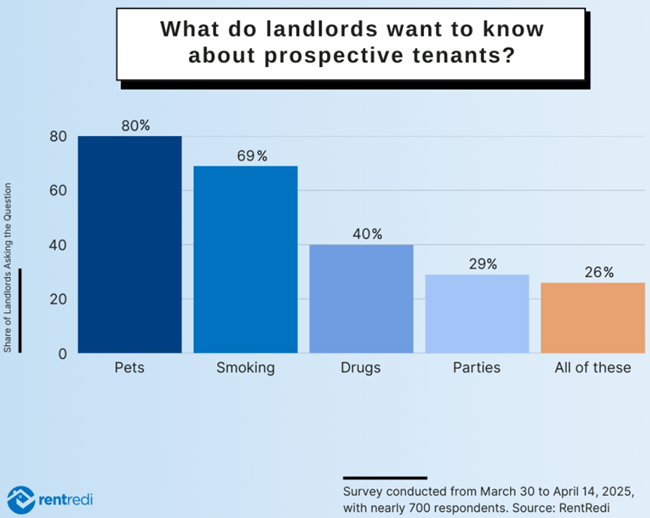Background checks are the most important tool in a landlord’s screening process, according to a survey of 700 landlords by the property-management software company RentRedi and the real estate investment-strategy company BiggerPockets.
The survey showed that landlords use multiple sources in tenant screening. At the top of the list, 88% of respondents said they run a certified tenant-screening report, while 78% said they reach out to references and 61% said they review applicants’ social media profiles.
Highlights of the report:
- Nearly 50% of landlords say background checks are the most important screening factor
- References and credit scores rank significantly lower in importance
- 88% of landlords run certified screening reports; 50% use multiple screening methods
- Over 90% of landlords verify employment and income
- Landlords increasingly consider lifestyle factors like pets, smoking, and social habits
- 59% of landlords now prequalify tenants by using software, outpacing manual methods
- More than two-thirds of landlords electronically verify tenant documents
- 8% of landlords still don’t verify any tenant information, highlighting a gap in tools and education
Verifying employment and income is key
The survey says 91% of landlords verify an applicant’s employment, while 90% confirm income, 84% check references, 82% verify credit scores, and 78% look into rental history.
More than 60% reported verifying all of these details before making a leasing decision, highlighting just how rigorous the screening process has become for many independent landlords.
Pets and smoking are top issues for landlords in tenant verification
Lifestyle issues are important in rental screening; 80% of landlords said they want to know about a tenant’s pets, while 69% are concerned with smoking habits.
Forty percent said recreational drug use was an important factor to understand, and 29% wanted to know whether tenants planned to host parties—and how often. A quarter of respondents said they try to gather information on all of these lifestyle preferences when screening.








